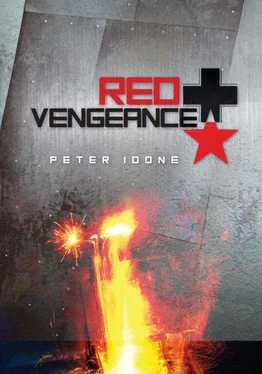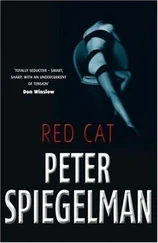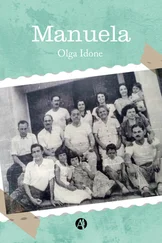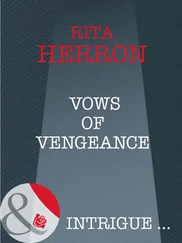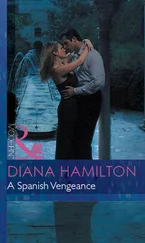Peter Idone - Red Vengeance
Здесь есть возможность читать онлайн «Peter Idone - Red Vengeance» весь текст электронной книги совершенно бесплатно (целиком полную версию без сокращений). В некоторых случаях можно слушать аудио, скачать через торрент в формате fb2 и присутствует краткое содержание. Год выпуска: 2012, ISBN: 2012, Издательство: CreateSpace Independent Publishing Platform, Жанр: prose_military, prose_magic, на английском языке. Описание произведения, (предисловие) а так же отзывы посетителей доступны на портале библиотеки ЛибКат.
- Название:Red Vengeance
- Автор:
- Издательство:CreateSpace Independent Publishing Platform
- Жанр:
- Год:2012
- ISBN:978-1479212415
- Рейтинг книги:4 / 5. Голосов: 1
-
Избранное:Добавить в избранное
- Отзывы:
-
Ваша оценка:
Red Vengeance: краткое содержание, описание и аннотация
Предлагаем к чтению аннотацию, описание, краткое содержание или предисловие (зависит от того, что написал сам автор книги «Red Vengeance»). Если вы не нашли необходимую информацию о книге — напишите в комментариях, мы постараемся отыскать её.
With these words Captain Hans Falkenstein implores his small vulnerable unit of panzergrenadiers to swear an oath of retribution before embarking on a hellish personal mission of reckoning. As Army Group South retreats toward the safety of the west bank of the Dniepr River, putting everything in its path to the torch, the crushing weight of the Soviet Red Army snaps at its heels. And yet Falkenstein is determined to stay behind in an effort to destroy a mythic Soviet T-34 tank known to war weary German troops as Red Vengeance. As the Wehrmacht suffers defeat after imminent defeat, Red Vengeance is observed, lurking on the horizon like a predator ready to ambush and devour all those who cross its path. Falkenstein’s mission is personal since Red Vengeance had annihilated his reconnaissance unit on the Kalmyk steppe over a year previously. Emerging from that hideous attack wounded, and quite possibly deranged, Falkenstein seeks revenge for the unwholesome, almost joyous slaughter of his men. He believes that Red Vengeance is no mere machine but a construct of evil operating under the control of an occult force.
With the aid of his trusted bodyguard, Khan, an alleged shaman from eastern Siberia, Falkenstein endeavors to employ the shaman’s magic as well as the weapons from his meager arsenal in order to destroy Red Vengeance and put an end to the myth of its invincibility.
Although I have attempted to be as accurate as possible concerning the historical setting of the novel (i.e.) the retreat to the Dniepr and the scorched earth policy enacted by the Wehrmacht, I wouldn’t characterize the novel as strictly historical fiction. I began
in 1997 without a clear intention of writing a full blown novel and especially a book that was over 400 pages in length. I had a few ideas in my head that I wanted to get down on paper and wanted to discover where it would lead. I did a lot of research on the topic and the more I did the more I got hooked. World War 2, and especially the manner in which the war was played out in Russia, was apocalyptic in scope. Researching the material would be at times both emotionally and psychologically daunting. The novel is certainly not an ‘entertainment’ nor do I consider it an adventure; although, for the sake of expediency, it’s tagged as such. I’m reminded of something the French author, poet, and aviator Antoine de Saint-Exupéry had written, “War isn’t an adventure… it’s a disease.”
September 1943. The Wehrmacht has instituted a policy of scorched earth in the southern Ukraine as it retreats to the Dnieper River. Entire armies, civilians, even animals are herded west to escape the onslaught of the Soviet Red Army. All but one man, Captain Hans Falkenstein, or “Mad Falkenstein” as he has come to be known, is determined to remain on the barren burning steppe in an effort to complete his singular mission. While the countryside erupts into flames Falkenstein and a ragtag group of panzergrenadiers, assembled from the whirlwind of a losing war, are pressed into service to help the Captain complete his cycle of revenge. Their orders are to hunt down and destroy the T-34 Soviet tank known as
. A front line myth,
is known as an unstoppable beast by the war weary German troops. Its appearance signifies doom for men, machines, and entire armies. Stalingrad, the winter offensives, Kursk, and now this retreat to form a coherent line of defense along the opposite bank of the Dniepr,
appears yet again. For Falkenstein,
is personal. It destroyed his entire patrol and he emerged from the wreckage of that first encounter terribly maimed… in body and mind. He is of the firm conviction that this T-34 is no mere machine but an embodiment of satanic evil. As Falkenstein leads his small vulnerable unit headlong into the abyss,
awaits like a predator, with a gaping, bloody maw. From the Author
From the Back Cover
